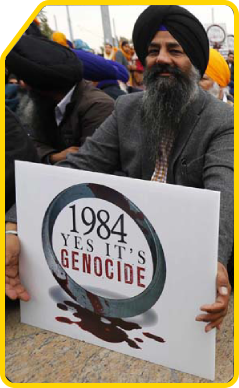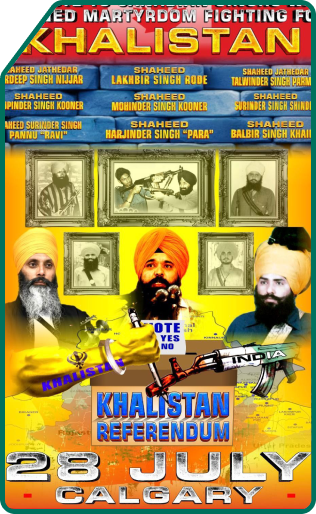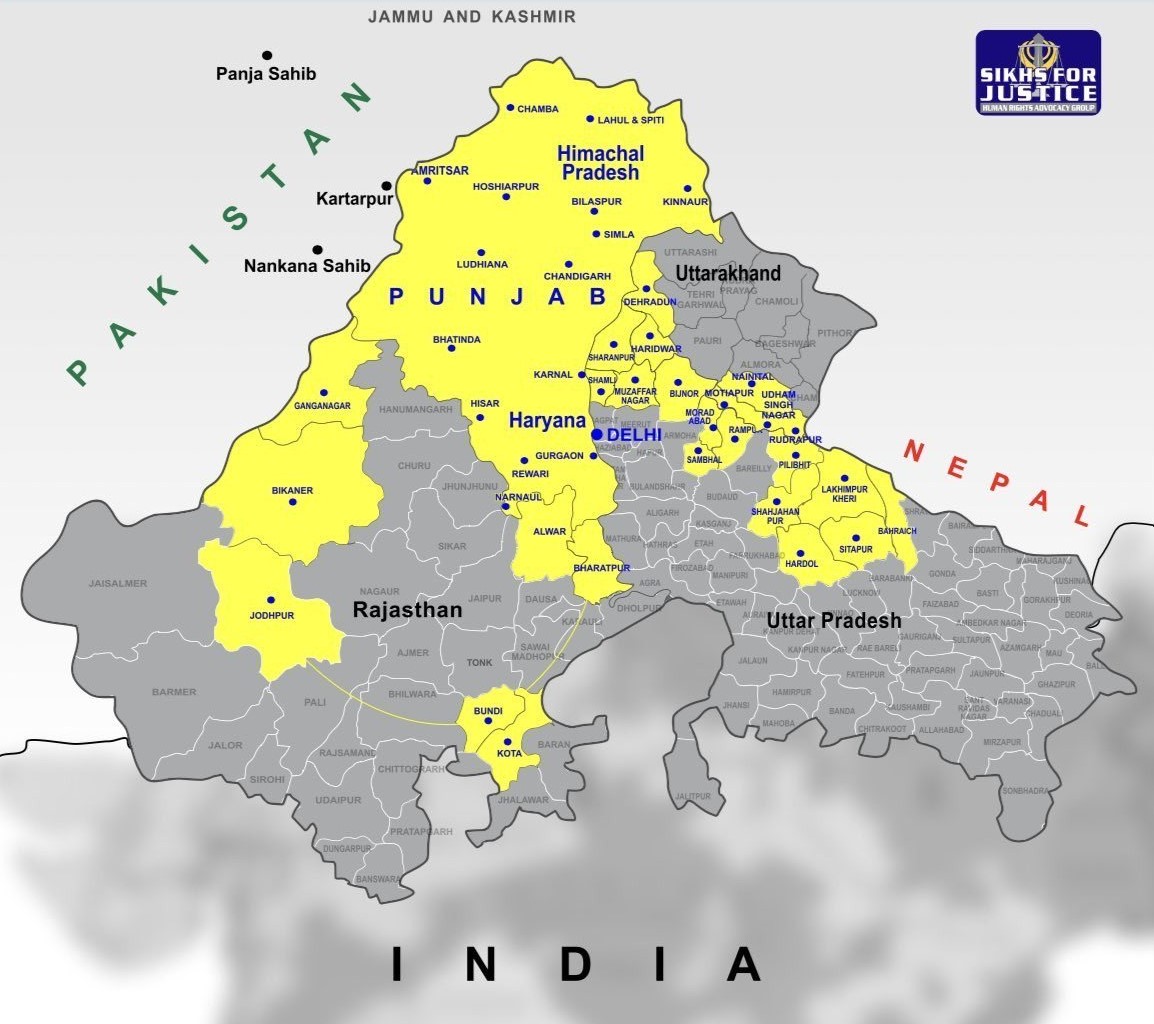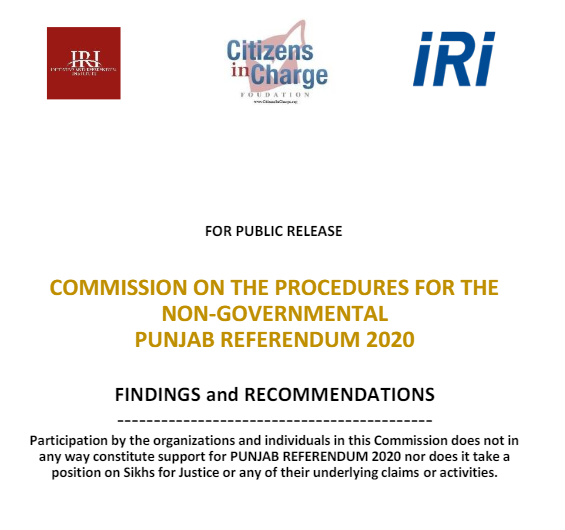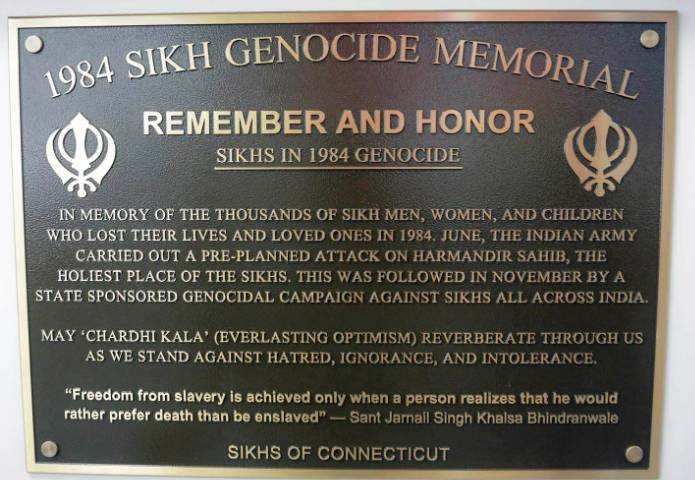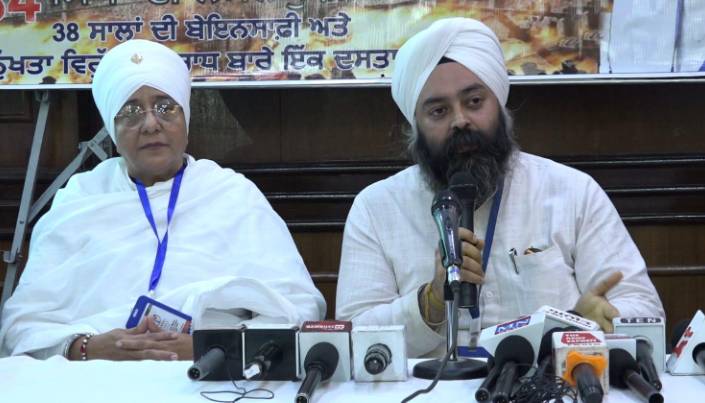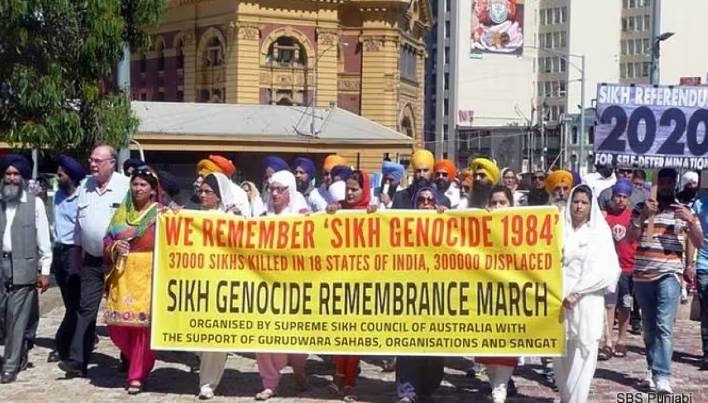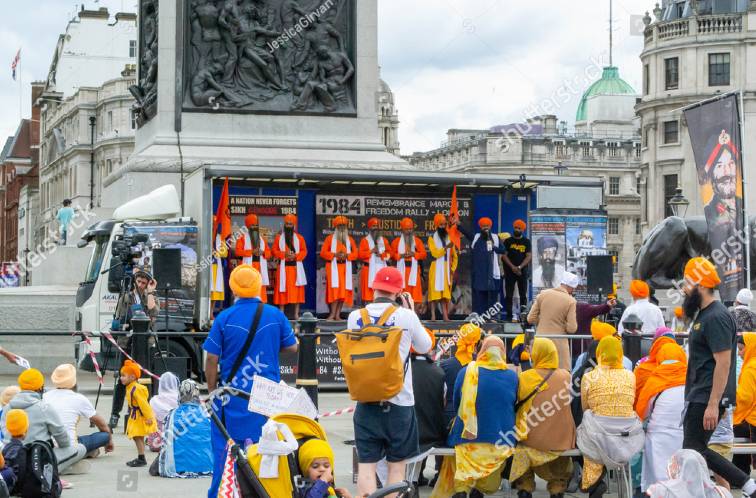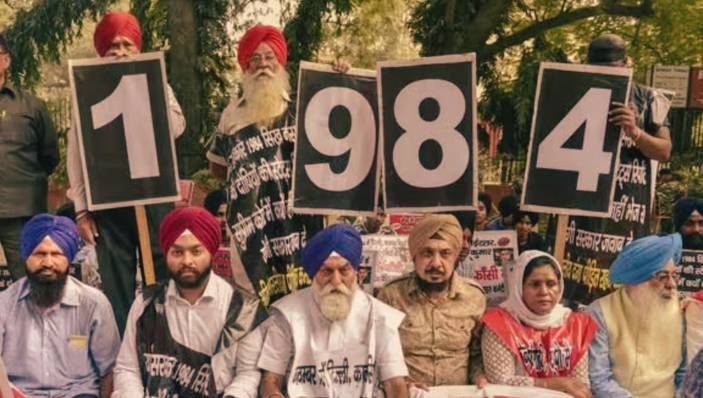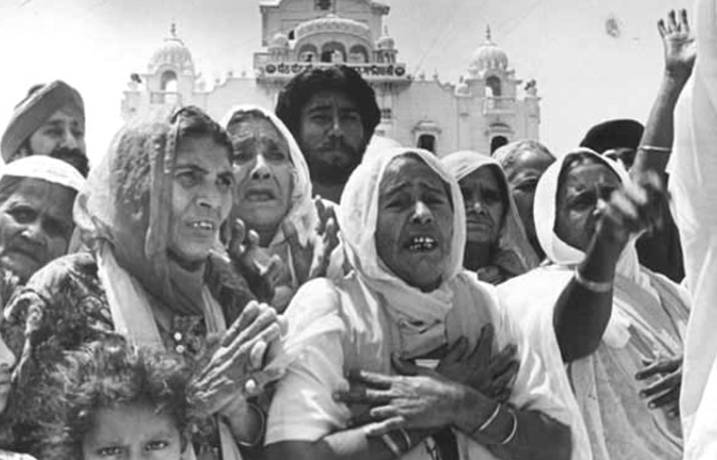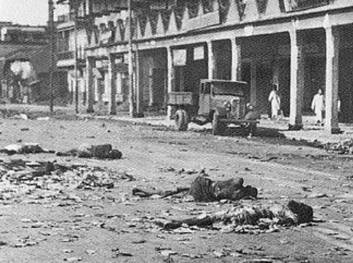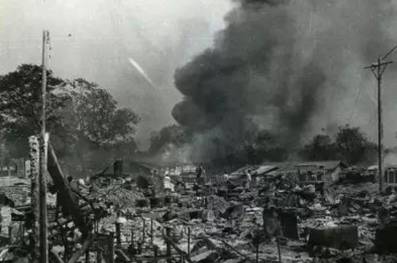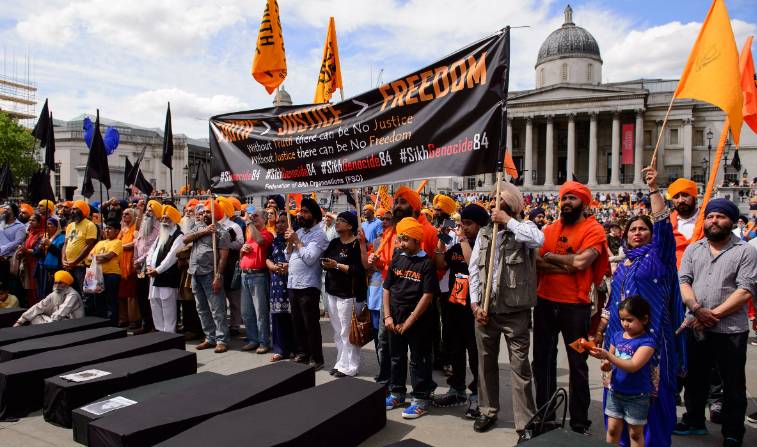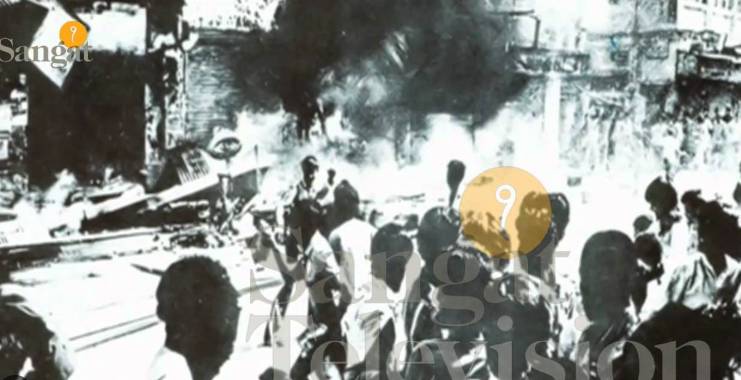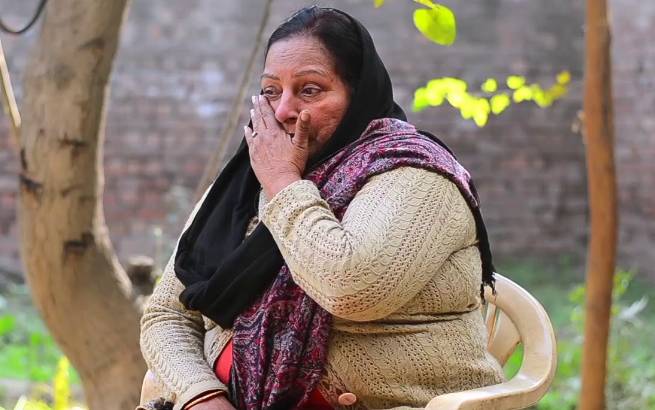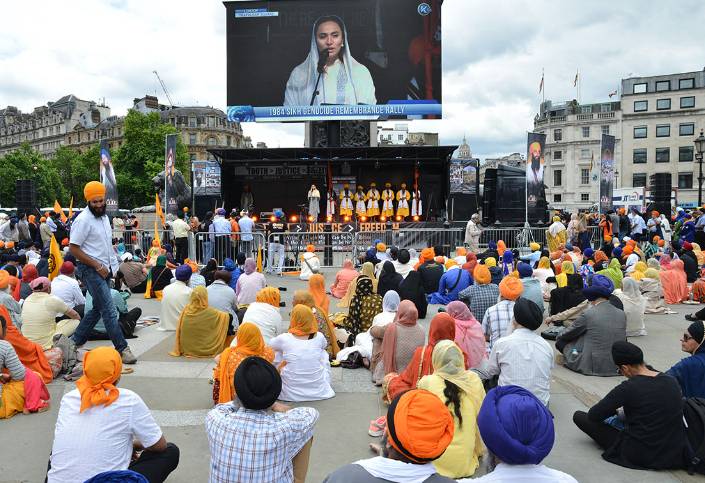What is a Referendum?
Referendum is the process of direct balloting to get the decision of a community on a straightforward political question or proposition requiring to be answered as YES or NO.
More Details01
What is Punjab Independence Referendum a.k.a Khalistan Referendum?
Punjab Independence or Khalistan Referendum is a campaign to liberate Punjab, currently occupied by India.
More Details02
What is the objective of the Punjab referendum campaign?
The objective of the Punjab/Khalistan Referendum campaign is to give the indigenous people of Indian held Punjab an opportunity to vote on the future and continued association of Punjab with the Union of India.
More Details03
A Tribute to Canadian Singhs who Attained Martyrdom Fighting for Khalistan
Shaheed Surinder Singh Pannu "Ravi"
Shaheed Lakhbir Singh Rode
Shaheed Mohinder Singh Kooner
Shaheed Harjinder Singh "Para"
Shaheed Jathedar Talwinder Singh Parmar
Shaheed Surinder Singh Shinder
Shaheed Balbir Singh Khaira
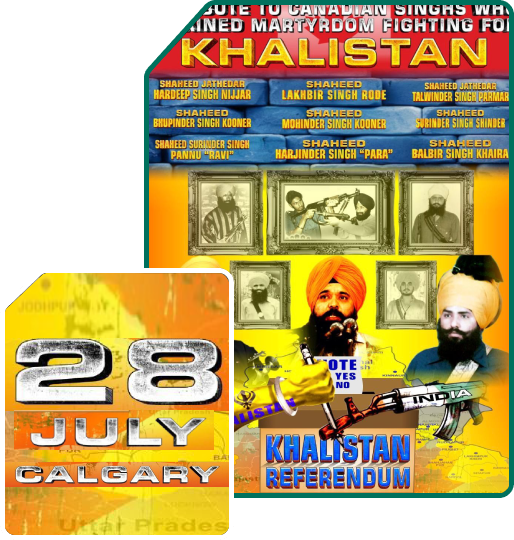
About Punjab
Punjab is a state in northern India. Forming part of the larger Punjab region of the Indian subcontinent, the state is bordered by the Indian union territories of Jammu and Kashmir to the north, Chandigarh to the east, the Indian states of Himachal Pradesh to the north and northeast, Haryana to the south and southeast, and Rajasthan to the southwest. It is bordered by Punjab, a province of Pakistan to the west.
The state covers an area of 50,362 square kilometers (19,445 square miles), 1.53% of India's total geographical area. It is the 20th-largest Indian state by area. With 27,704,236 inhabitants at the 2011 census, Punjab is the 16th-largest state by population, comprising 22 districts. Punjabi, written in the Gurmukhi script, is the most widely spoken and official language of the state.
The main ethnic group are the Punjabis, with Sikhs (57.7%) and Hindus (38.5%) as the dominant religious groups. The state capital is Chandigarh, a Union Territory, and the capital of the neighboring state of Haryana. The five tributary rivers of the Indus River from which the region took its name are the Sutlej, Ravi, Beas, Chenab, and Jhelum rivers: the Sutlej, Ravi, and Beas rivers flow through the Indian Punjab.
Background
An independent commission reviewed the legal and historical basis for holding a non-governmental referendum on the right of Punjab to vote on their right to self-determination. The commision found that the referendum does substantially meet the accepted protocols and best practices for public votes and referendums so as to be considered a legitimate instrument of public debate helping further the peaceful resolution of the conflict to re-establish Punjab as a nation state.
Past Events and Media Reports
35,000
Votes Counted
50,000
Expected Votes
37,000
Votes Counted
53,000
Expected Votes
Calgary
On 28 July, 2024.
30,000
Votes Counted
40,000
Expected Votes
Sacramento
On 31 March, 2024.
60,000
Votes Counted
75,000
Expected Votes
San Francisco
On 28 January, 2024.
127,000
Votes Counted
150,118
Expected Votes
Surrey British Columbia
On 29 October, 2023.
200,100
Votes Counted
222,160
Expected Votes
Guru Nanak Sikh Gurdwara in Surrey
On 10 September, 2023.
135,000
Votes Counted
180,000
Expected Votes
Malton
On 16 July, 2023.
42,500
Votes Counted
53,125

